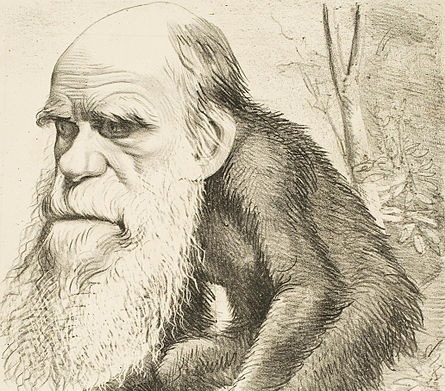Great ideas, @nicklebleu !
It could be... Although, let me nitpick a bit here:
1. What do you do with the poor sing languages, then?
2. What do you do if you find an "alien" language that is purely telepathic?
In those two cases, you are not in the realm of sounds exclusively anymore. Granted, these are exceptions, so it doesn't rule out your idea completely.
About language being a reflection of how we think, it could also be the opposite. There are actually some debates about it. Some people (and babies) are said to be able to think without language. I don't know that for sure, but one characteristic of thought is that it doesn't always need to be linear, while language is. (E.g you can hold two thoughts at once, or have a more encompassing thought, but with language, whether written or oral, you can't "stack" things together, pronounce two words at once, etc. You need time and space to produce language.) Some people will argue then that thought comes first, and speech allows for us to organize it and improve it. Others will say that speech limits thought precisely because of that linearity.
As for brain constraints, there are very strange cases where you get the impression that the brain is just an "antenna". People with injuries to the Brocca and Wernicke areas (associated with language wiring), and who muster language perfectly well in other areas. Or polyglots using less of their brain to use more languages. Or people who wake up from a surgery speaking a foreign language or with a foreign accent. So, I have serious doubts about the "hardware/software" analogy, in that perhaps the "software" (language) is "out there", not in our brain. And that the hardware is everything, brain, vocal tract, respiratory system, etc. FWIW!
You're going to love "Babel", but I'd also recommend that you read Margaret Magnus' book. It will give you a lot more ideas!
/m/ and /a/ are the sounds that use the whole vocal cavity, /m/ also including the nasal cavity. It is possible that they are the most "open" sounds in that sense. They are also both the most melodious. The "suckling" hypothesis can only apply to /m/, I think, not to /a/ (it if was /a/, the baby would have too much air escaping, and no pressure in his/her lips to breastfeed.)
As for "taica", that's interesting! Magnus would say that, on top of the meaning intrinsic to sounds due to the way they are articulated in the vocal tract (e.g /b/ is an explosion in the mouth, so used for works related to explosions, or words with physical boundaires), there is also the part of meaning that concerns cultural reference. That is, how each culture sees the concept being named. Sounds will then be chosen to match those qualities too. Thus, you'd have to know how "mother" is viewed by each of these cultures. And do babies still say "ma-ma-ma" at first, even though later on they learn the word "Taica"?
There is SOME proof for speech affecting thoughts, such as what is used in NLP, sophrology, plain affirmations, BrainGym, etc. This then can lead to a better attitude, which leads to better thinking, and to better actions, and hopefully a better reality. On the opposite extreme, you have rhetoric, propaganda, double-speak, etc. The extent to which both things "create our reality" has to do, I think, with the fact that our subconscious mind is active all the time, and that a part of "language" is filtered by it more than by our conscious mind understanding literal messages.
The Cs mentioned at some point that viruses were "thoughts made manifest". Who knows how that works! Maybe there is something like this at our level too. A constant relationship between the immaterial and the physical.
The problem is, AFAIK, that even the best physicists can't tell us what "information", "information field", "thought", "consciousness", "soul", "mind" and even "language" is (heck, even "electrons" and "electromagnetic fields" are there only in theory). So, we can speculate, but it's difficult to prove anything. It's still super interesting, IMO! Just as long as we don't assume we have the full truth, because this may be one area where our knowledge is too limited.
Thank you for your post!!
One thing I have been thinking about for years is: whether or not it would (or will be) possible to design a ‘Universal Translator’ device, at least for human speech, that would be able to translate any language without having to learn it before, just by context and sound. I always thought that speech is a reflection of how we think, and maybe even of how exactly our brains are wired, which means that it would follow some internal rules (a bit like hardware constrains the way you can write code for your software). And your videos have given me more insight into this question - maybe in addition to the constraints in the brain, the sounds themselves have an inbuilt meaning. And if it was possible, would such a device work for an alien language, thus reflecting a truly universal substrate to language based on sound (maybe alien language is based on something else)?
It could be... Although, let me nitpick a bit here:
1. What do you do with the poor sing languages, then?

2. What do you do if you find an "alien" language that is purely telepathic?
In those two cases, you are not in the realm of sounds exclusively anymore. Granted, these are exceptions, so it doesn't rule out your idea completely.
About language being a reflection of how we think, it could also be the opposite. There are actually some debates about it. Some people (and babies) are said to be able to think without language. I don't know that for sure, but one characteristic of thought is that it doesn't always need to be linear, while language is. (E.g you can hold two thoughts at once, or have a more encompassing thought, but with language, whether written or oral, you can't "stack" things together, pronounce two words at once, etc. You need time and space to produce language.) Some people will argue then that thought comes first, and speech allows for us to organize it and improve it. Others will say that speech limits thought precisely because of that linearity.
As for brain constraints, there are very strange cases where you get the impression that the brain is just an "antenna". People with injuries to the Brocca and Wernicke areas (associated with language wiring), and who muster language perfectly well in other areas. Or polyglots using less of their brain to use more languages. Or people who wake up from a surgery speaking a foreign language or with a foreign accent. So, I have serious doubts about the "hardware/software" analogy, in that perhaps the "software" (language) is "out there", not in our brain. And that the hardware is everything, brain, vocal tract, respiratory system, etc. FWIW!
Connected to that is the observation that the word ‘mother’ is very similar in most - but not all! - languages (in Aymara it is ‘Taica’; in Calo it is Dai; then there are a few languages with a N rather than a M sound - like nan). It also happens to be the first word for a lot of babies. Most linguists explain this with the immaturity of the voice apparatus and that this sound mimics suckling the breast in terms of muscular use. And this might be partially true, but again, there might be also a deeper meaning in the sound MA.
The interesting thing with the words ‘mother’ that don’t contain the MA sound - like ‘Taica’ And in case the word in another language doesn’t closely resemble the MA syllable, maybe there is a ‘children’s word’ that would do so - a bit like ‘mum’ vs ‘mother’
You're going to love "Babel", but I'd also recommend that you read Margaret Magnus' book. It will give you a lot more ideas!
/m/ and /a/ are the sounds that use the whole vocal cavity, /m/ also including the nasal cavity. It is possible that they are the most "open" sounds in that sense. They are also both the most melodious. The "suckling" hypothesis can only apply to /m/, I think, not to /a/ (it if was /a/, the baby would have too much air escaping, and no pressure in his/her lips to breastfeed.)
As for "taica", that's interesting! Magnus would say that, on top of the meaning intrinsic to sounds due to the way they are articulated in the vocal tract (e.g /b/ is an explosion in the mouth, so used for works related to explosions, or words with physical boundaires), there is also the part of meaning that concerns cultural reference. That is, how each culture sees the concept being named. Sounds will then be chosen to match those qualities too. Thus, you'd have to know how "mother" is viewed by each of these cultures. And do babies still say "ma-ma-ma" at first, even though later on they learn the word "Taica"?
The last issue that seems connected to all this (and it may well not be) is a thought I have held for a very long time: Anything that a human can think of will become reality at some point. Again, this may be false, and of course I don’t have proof - I can only look back (think Jules Vernes). But it always has looked to me that if we can form a thought, that already halfway materialises what we are thinking about in a sensed - the rest is research and development.
There is SOME proof for speech affecting thoughts, such as what is used in NLP, sophrology, plain affirmations, BrainGym, etc. This then can lead to a better attitude, which leads to better thinking, and to better actions, and hopefully a better reality. On the opposite extreme, you have rhetoric, propaganda, double-speak, etc. The extent to which both things "create our reality" has to do, I think, with the fact that our subconscious mind is active all the time, and that a part of "language" is filtered by it more than by our conscious mind understanding literal messages.
The Cs mentioned at some point that viruses were "thoughts made manifest". Who knows how that works! Maybe there is something like this at our level too. A constant relationship between the immaterial and the physical.
The problem is, AFAIK, that even the best physicists can't tell us what "information", "information field", "thought", "consciousness", "soul", "mind" and even "language" is (heck, even "electrons" and "electromagnetic fields" are there only in theory). So, we can speculate, but it's difficult to prove anything. It's still super interesting, IMO! Just as long as we don't assume we have the full truth, because this may be one area where our knowledge is too limited.
Thank you for your post!!








 )
)